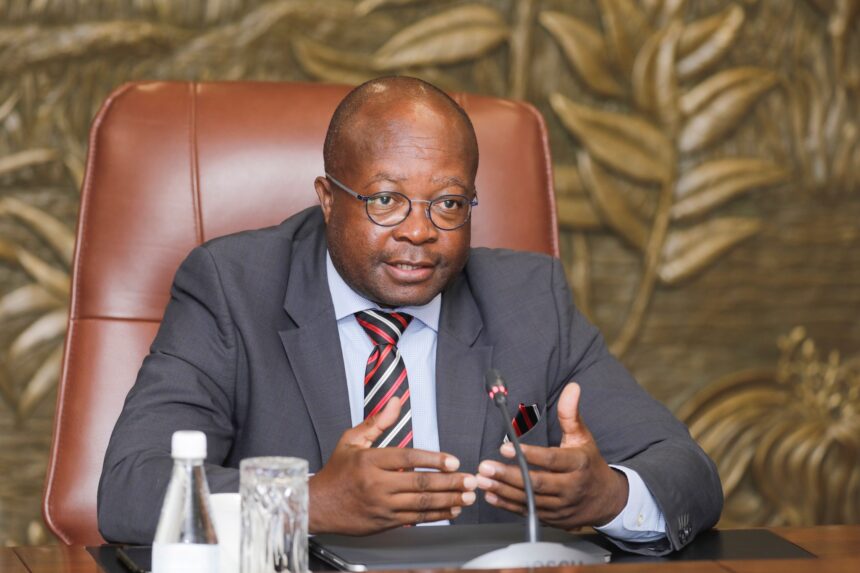National Planning Commission director general Obeth Kandjoze is perplexed by the International Monetary Fund’s (IMF) recommendation to make all oil and gas deals public.
The IMF’s recommendations were made amidst rampant corruption in some African oil and gas countries. The IMF request, he said, undermines good governance.
“All of us globally must act and do the same. Not some put by the IMF to disclose theirs, and those in the most superpower structures of global governments are excluded,” said Kandjoze.
He was speaking on Tuesday at the Nedbank Corporate and Investment Banking meeting on oil and gas. An IMF report released last month, in response to finance minister Iipumbu Shiimi, cautioned that to ensure sustained benefits for its citizens, Namibia should pre-empt any challenges by adhering to the highest standards for transparency and governance.
IMF experts were in Namibia from 28 November to 13 December 2023. The purpose of the visit was to provide technical assistance on the taxation and fiscal management of large-scale petroleum investments currently under consideration. “An immediate down-payment on this effort could be realised by making publicly available in an easily accessible manner all petroleum agreements concluded by the government,” the IMF proposed. It further emphasised that Namibia should ensure effective and consistent policy coordination, moving forward.
The IMF also recommended that the Namibian government establish an inter-ministerial committee to coordinate petroleum sector policy design and implementation. This, the IMF noted, should be supported by a technical- level cooperation mechanism between relevant ministries and agencies.
“Why should any other sovereign entity dictate to us what to disclose and what not to disclose? That exercise remains solely in the hands of the governance structure of this country. This very country funds its own budget. This very country does not get any donor money for its budgetary programmes. We actually have a governance framework against corruption,” Kandjoze argued.
At the same occasion, interim managing director of the National Petroleum Corporation of Namibia (Namcor) Ebson Uanguta said transparency is
vital for the sector to thrive. However, he noted there should be a balance between what to disclose and what not to.
“It is normal business that some information remains confidential between two parties, but the government can make some information public that has interest to them like economic benefits, taxes and royalties,” Uanguta said.



